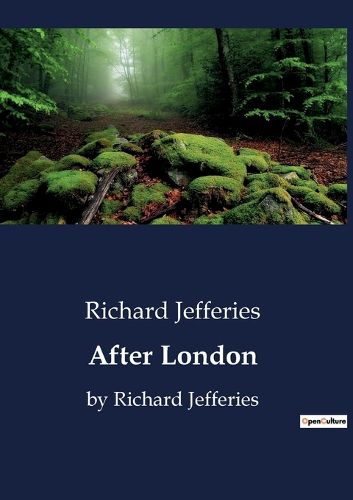Readings Newsletter
Become a Readings Member to make your shopping experience even easier.
Sign in or sign up for free!
You’re not far away from qualifying for FREE standard shipping within Australia
You’ve qualified for FREE standard shipping within Australia
The cart is loading…






This title is printed to order. This book may have been self-published. If so, we cannot guarantee the quality of the content. In the main most books will have gone through the editing process however some may not. We therefore suggest that you be aware of this before ordering this book. If in doubt check either the author or publisher’s details as we are unable to accept any returns unless they are faulty. Please contact us if you have any questions.
After London presents a version of England many generations after an apocalyptic event has drastically depopulated the country, leaving nature to take back the land and human survivors to scrape what they can from their surroundings. Petty kings and corrupt republics rule from the region around the lake that has formed in the middle of the country. Wild men hide in the woods. Society has regressed to a way of life similar to the medieval age. The novel is told in two parts. The first details what's known of the fall of civilization, while the second part follows the son of a baron as he sets off to explore beyond the kingdom he was born into. Nature, civilization, violence, poverty, exploitation, and exploration are major themes. Richard Jefferies wrote the novel toward the end of his life. It combines the nature writing he is traditionally known for, with a fantastical science fiction setting, making it an early example of post-apocalyptic fiction. The surreal exploration of the former site of London bears a striking resemblance to the aftermath of a nuclear explosion, decades before the atomic bomb was created. After London was an inspiration for William Morris, who said "absurd hopes curled around my heart as I read it." Morris would go on to reference the pastoralism present in After London in his utopian novel News From Nowhere.
$9.00 standard shipping within Australia
FREE standard shipping within Australia for orders over $100.00
Express & International shipping calculated at checkout
This title is printed to order. This book may have been self-published. If so, we cannot guarantee the quality of the content. In the main most books will have gone through the editing process however some may not. We therefore suggest that you be aware of this before ordering this book. If in doubt check either the author or publisher’s details as we are unable to accept any returns unless they are faulty. Please contact us if you have any questions.
After London presents a version of England many generations after an apocalyptic event has drastically depopulated the country, leaving nature to take back the land and human survivors to scrape what they can from their surroundings. Petty kings and corrupt republics rule from the region around the lake that has formed in the middle of the country. Wild men hide in the woods. Society has regressed to a way of life similar to the medieval age. The novel is told in two parts. The first details what's known of the fall of civilization, while the second part follows the son of a baron as he sets off to explore beyond the kingdom he was born into. Nature, civilization, violence, poverty, exploitation, and exploration are major themes. Richard Jefferies wrote the novel toward the end of his life. It combines the nature writing he is traditionally known for, with a fantastical science fiction setting, making it an early example of post-apocalyptic fiction. The surreal exploration of the former site of London bears a striking resemblance to the aftermath of a nuclear explosion, decades before the atomic bomb was created. After London was an inspiration for William Morris, who said "absurd hopes curled around my heart as I read it." Morris would go on to reference the pastoralism present in After London in his utopian novel News From Nowhere.